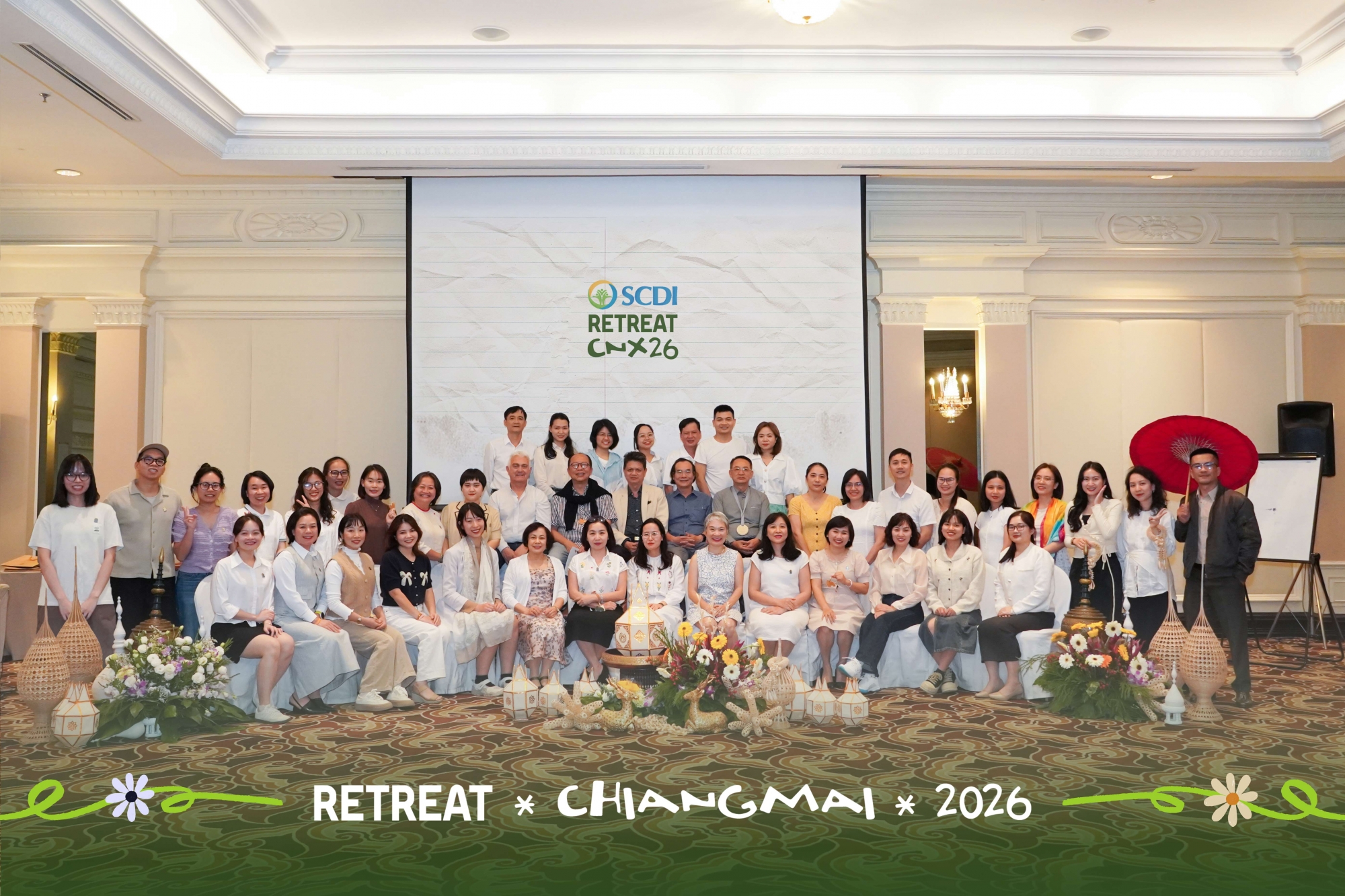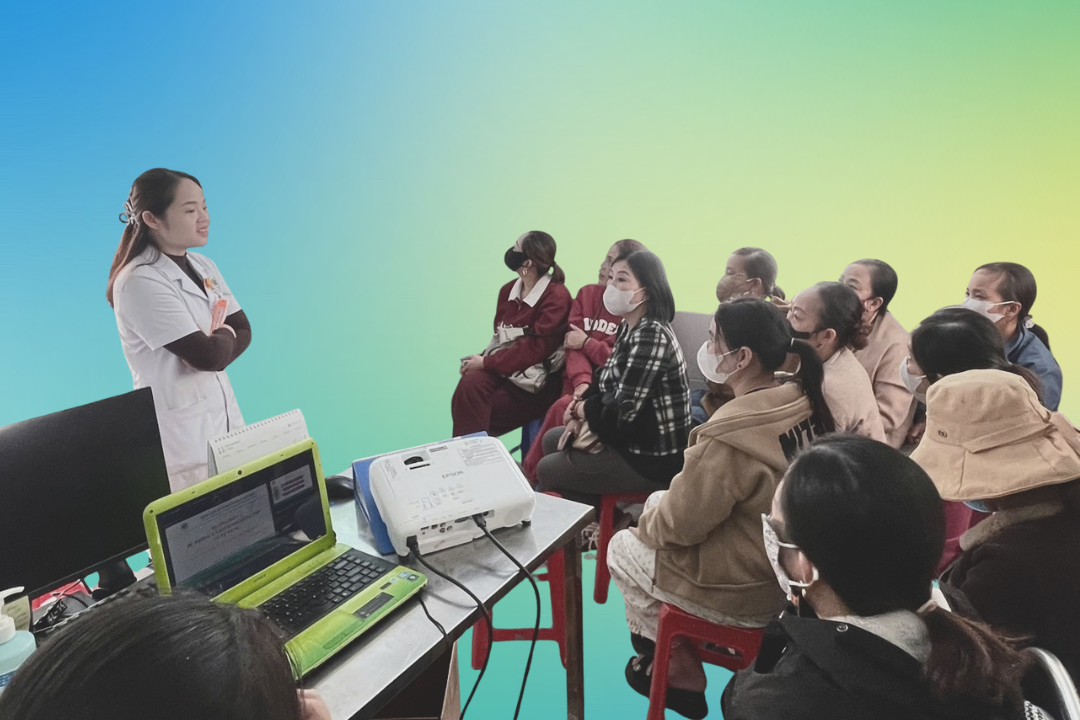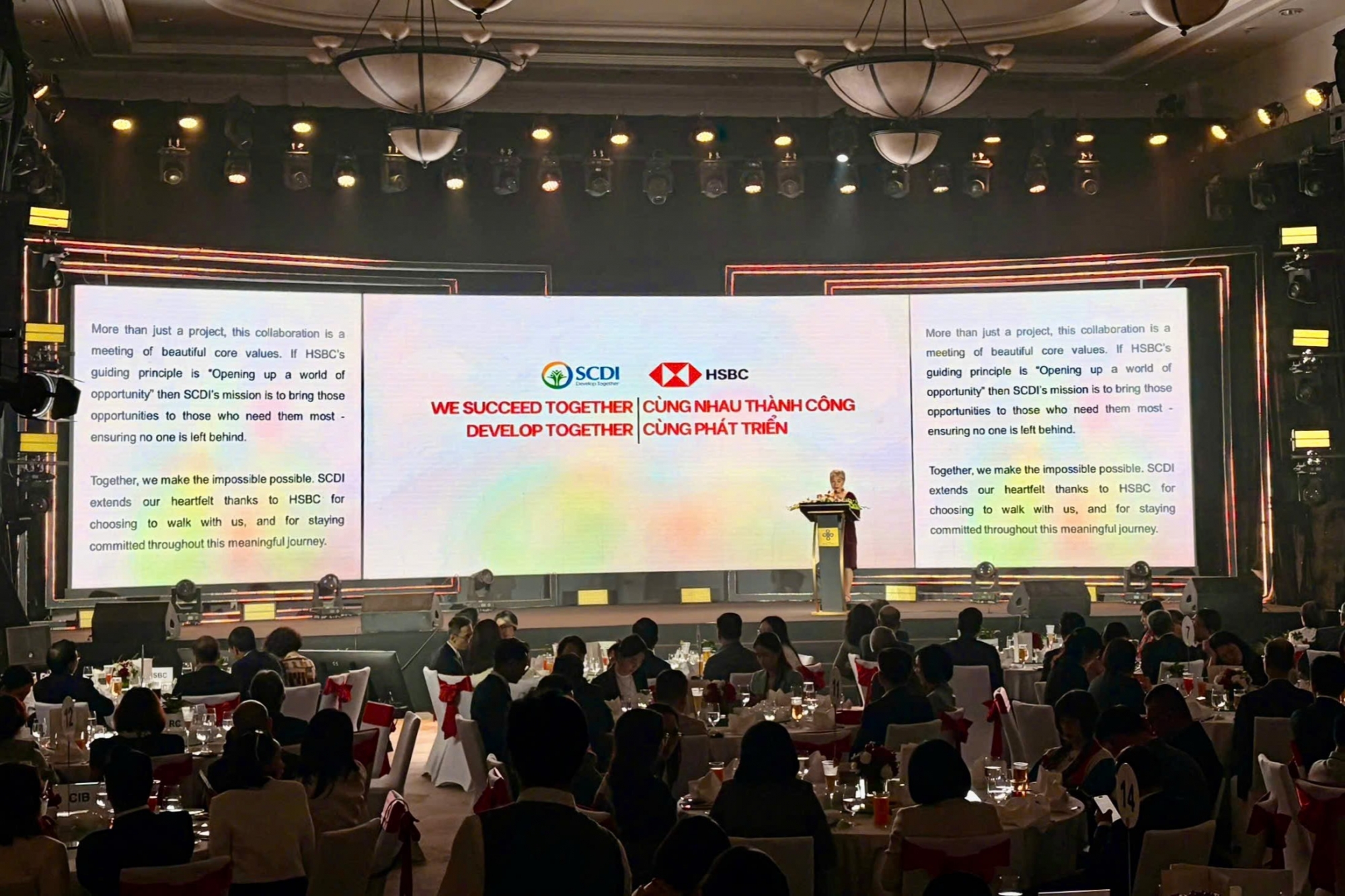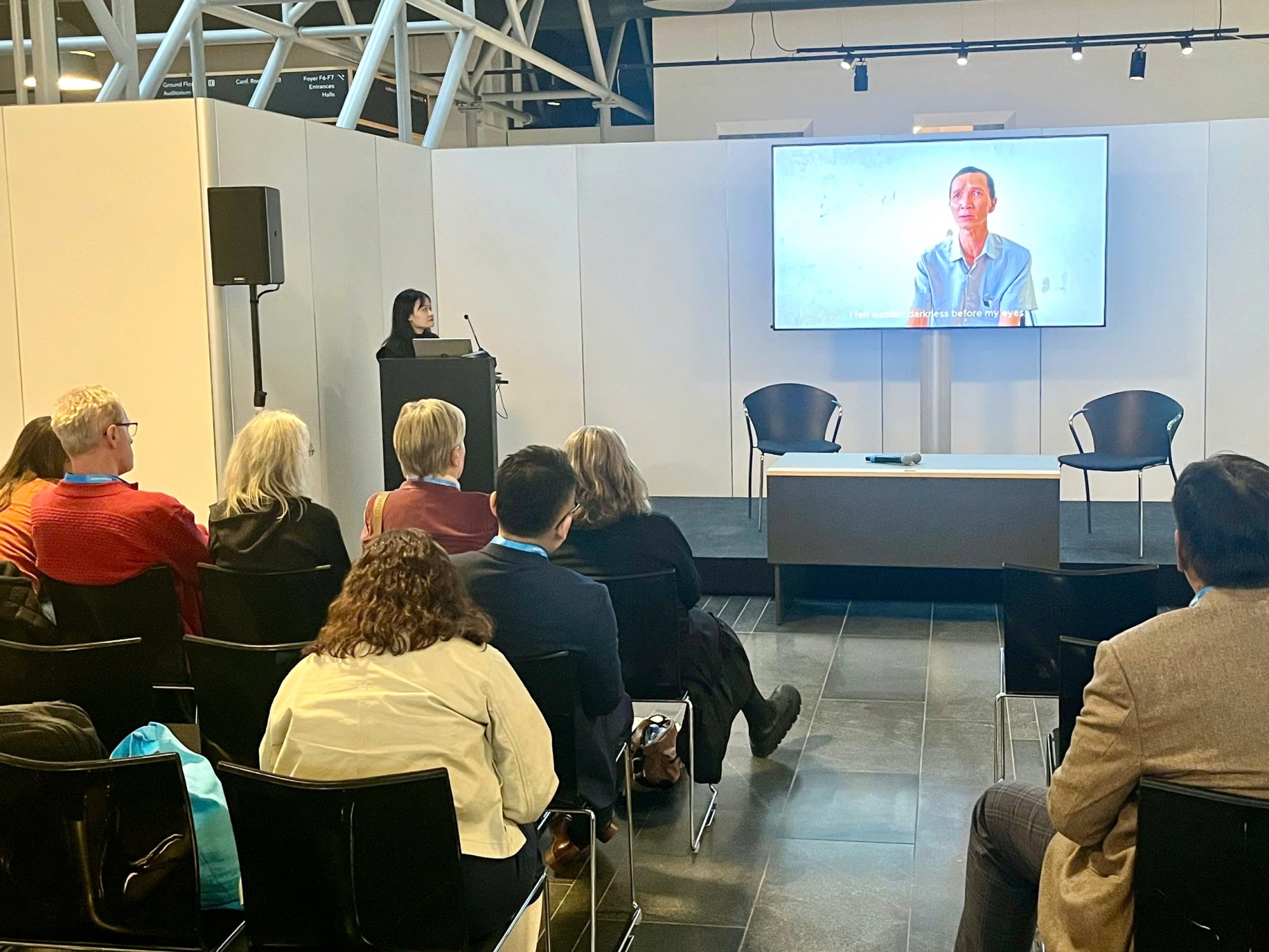From 13 to 15 November 2025, the Center for Supporting Community Development Initiatives (SCDI) held Community Meeting 2025 in Quy Nhon, bringing together more than 150 delegates representing government agencies, partners, organizations, and community members from across the country.
Photo: Dr. Le Cong Luong, Deputy General Secretary and Head of the Department of Science and International Cooperation, VUSTA, delivering opening remarks
-min.jpg)
Photo: Mr. Dinh Ha Nam, MD., MSc., Deputy Director of Gia Lai Department of Health, giving opening remarks
-min.jpg)
Photo: Mrs. Khuat Thi Hai Oanh, MD., MSc., SCDI Executive Director, speaking and introducing Community Meeting 2025
-min.jpg)
Photo: Mr. Khuat Dinh Vien, Director of Central Highlands Community Support Social Enterprise (CCS), delivering a welcome speech
The meeting offered SCDI, community groups, and partners a chance to reflect on what has been achieved, share practical lessons, and discuss new directions to strengthen community health and improve access to services for vulnerable groups in Vietnam.
Across three days, the program featured dynamic discussions on key topics including mental health, HIV/AIDS, tuberculosis, social and health policy, and outstanding community-based intervention models that contribute to disease prevention and sustainable development. These sessions created an open space for participants to exchange experiences, explore challenges, and identify promising solutions for the future.
Mental health: strengthening early support at the community level
One of the key topics discussed during Community Meeting 2025 was mental health, an area facing growing demand as many communities continue to deal with post-pandemic stressors and shifting social dynamics. Vietnam still has a high treatment gap, with most people experiencing mental health issues unable to access timely care.
Speakers shared updates on the current landscape and highlighted the importance of early detection and referral. The session also introduced SCDI’s DREAMH project and the Quick Screening Tool (QST), presenting early validation results and discussing how community workers can use simple tools to identify anxiety, depression, and trauma symptoms. The discussion emphasized building practical pathways that help individuals access counseling and specialized care sooner.
-min.jpg)
Photo: Ms. Le Sao Mai, MD., MSc., Psychiatrist and Lecturer at Hai Phong University of Medicine and Pharmacy, presenting an overview of mental health in Vietnam and preliminary findings from validating the Quick Screening Tool (QST)
-min.jpg)
Photo: Dr. Laurent Michel, Psychiatrist and Medical Director at Pierre Nicole Center (France), delivered an online presentation on the development and validation of the Quick Screening Tool
-min.jpg)
Photo: Ms. Nguyen Minh Trang, Program Manager for Harm Reduction and Addiction Treatment at SCDI, introducing the DREAMH project and discussing planning with community partners
Discussing core public health challenges
The following two days centered on major public health concerns: HIV/AIDS, tuberculosis (including latent TB), and dengue.
Speaking about the TB situation in Vietnam, Dr. Nguyen Dinh Tuan, Chief of Office and Head of the National TB Program’s Operations Division, outlined the current burden of TB, including ongoing challenges in early detection and treatment adherence. He emphasized the essential role of community engagement from screening support to long treatment journeys.
-min.jpg)
Photo: Dr. Nguyen Dinh Tuan presenting on the TB burden, intervention strategies, and the role of communities
Dr. Didier Laureillard, Infectious Diseases Specialist and ANRS|MIE–Ministry of Health Cooperation Coordinator, presented on latent TB, highlighting the risks posed by asymptomatic individuals who may progress to active disease. His presentation underscored the need for proactive screening, preventive treatment, and community-level case management.
-min.jpg)
Photo: Dr. Didier Laureillard discussing the burden of latent TB, strategies for screening, diagnosis, treatment, and the role of communities
Representatives from the Department of Disease Control, including Dr. Doan Thi Thuy Linh and Ms. Tran Thi Thu Hien, provided key updates on Vietnam’s HIV/AIDS response. Their sessions highlighted intervention strategies, community involvement, and updates about Decree 141, which details the implementation of the HIV/AIDS Law.
-min.jpg)
Photo: Dr. Doan Thi Thuy Linh presenting on the HIV/AIDS situation and intervention strategies
-min.jpg)
Photo: Ms. Tran Thi Thu Hien presenting updates on Decree 141
Dr. Ann-Claire Gourinat, Virologist and Deputy Coordinator of ANRS|MIE Vietnam, also shared insights on dengue-carrying mosquitoes in Vietnam and strategies for prevention.
-min.jpg)
Photo: Dr. Ann-Claire Gourinat speaking on dengue at the event
Additionally, Mrs. Khuat Thi Hai Oanh outlined key global health challenges, from infectious and non-communicable diseases to mental health and climate change. Her presentation emphasized the importance of global solidarity, universal health coverage, and a One Health approach to help communities respond to increasingly complex risks.
-min.jpg)
Photo: Mrs. Khuat Thi Hai Oanh sharing an overview of global health and development issues, SCDI’s strategic direction, and suggestions for communities
Policy updates, dialogue, and sharing community-based models
Alongside technical discussions, the event included sessions on important policies such as health insurance and civil documentation. Participants were updated on new regulations, especially those affecting people without identification papers or with administrative barriers, helping improve access to social protection and health services.
-min.jpg)
Photo: Mr. Vu Xuan Hoa, Representative from the Police Department for Administrative Management of Social Order, sharing updates on personal identification documents
-min.jpg)
Photo: Mr. Phan Van Toan, Health Insurance Expert, delivering an online presentation about the latest updates on health insurance policies
Community members also discussed how to apply the intervention framework of Breaking the Cycle to support children across age groups and local conditions, focusing on priority setting, resource allocation, and designing activities aligned with real needs.
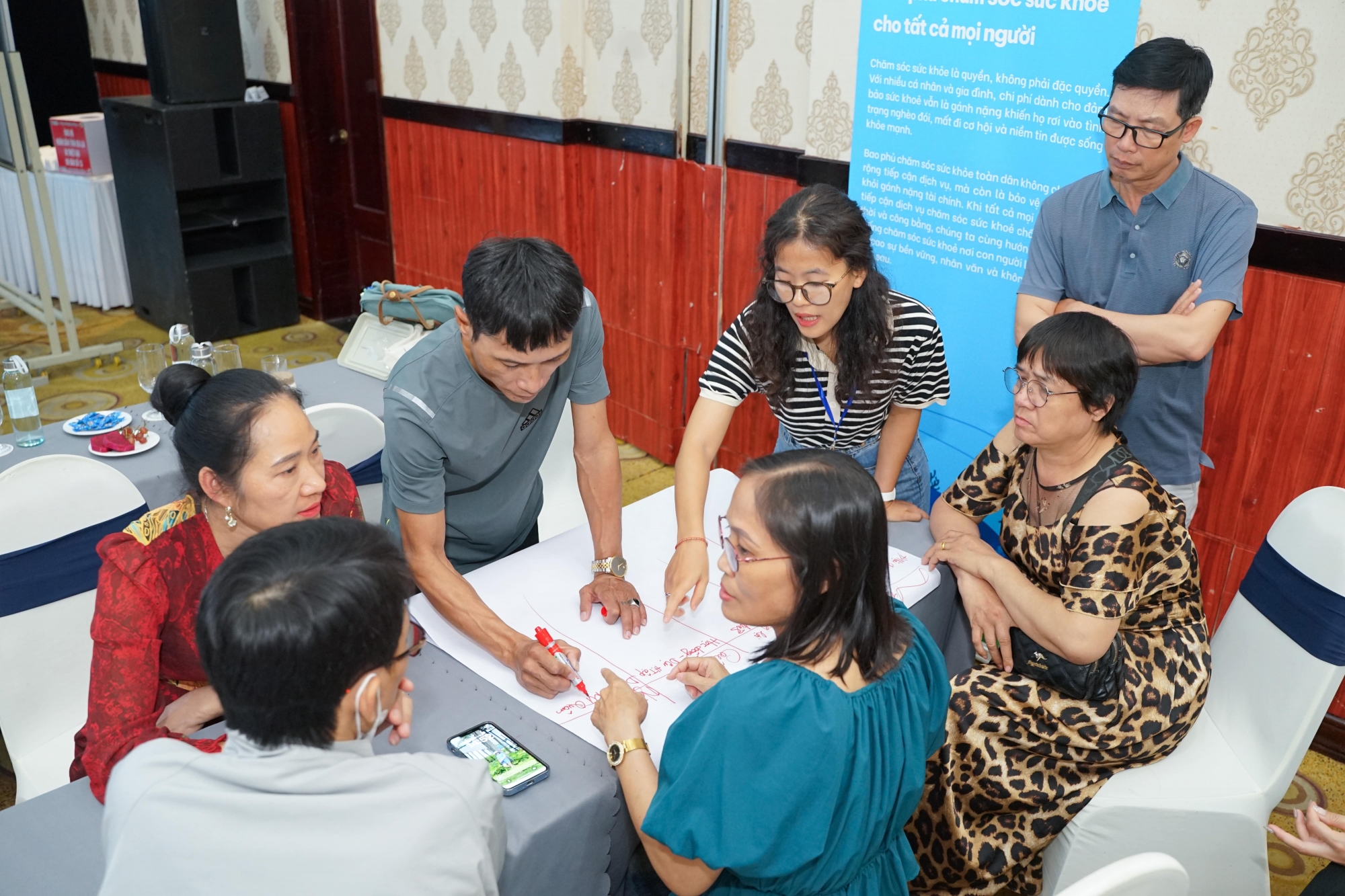
Photo: Community members actively engaging in group discussions
The event also featured sessions to build community capacity in implementing local interventions, joining public health programs, and applying artificial intelligence in their work.
Community Meeting 2025 wrapped up in a warm, energetic atmosphere. Beyond celebrating achievements, it marked the beginning of new steps forward — where communities continue to stand at the center of all efforts toward support, resilience, and sustainable development, ensuring no one is left behind.

-min.jpg)
-min.JPG)



